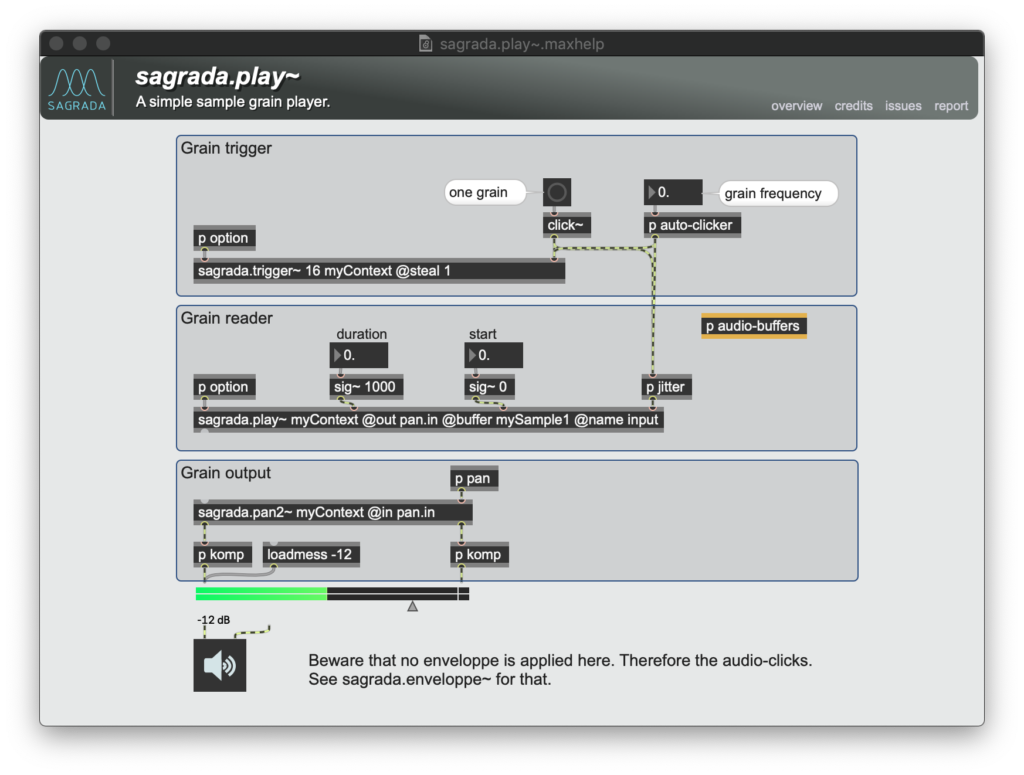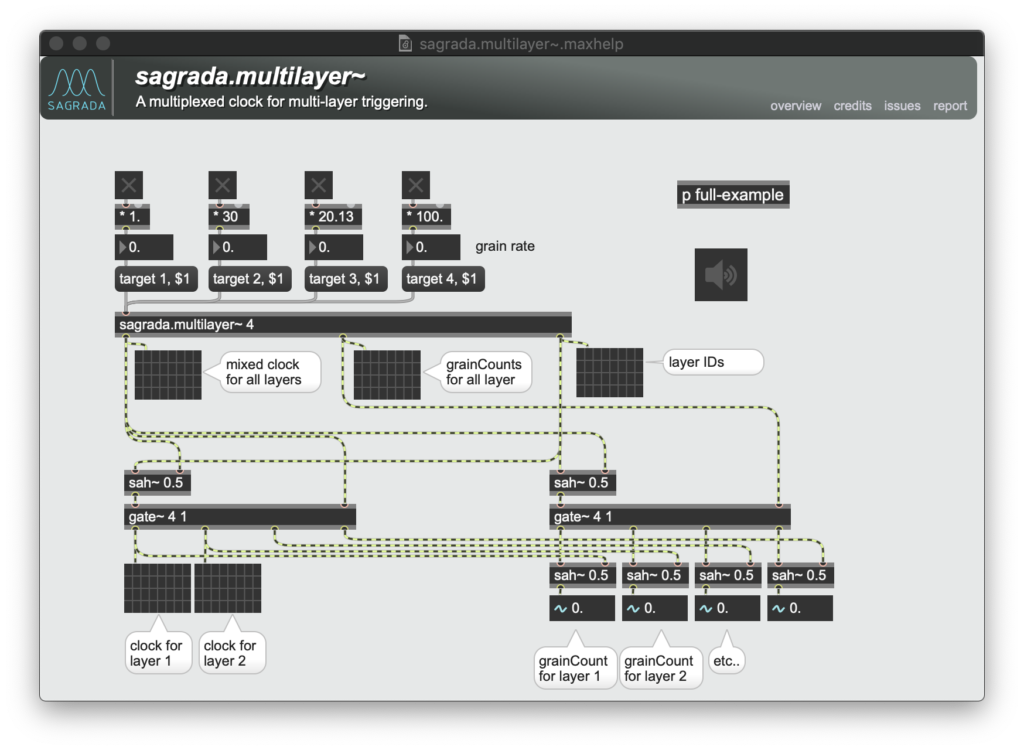Vibrotactile transformation of musical audio streams
Vibrification, or the transformation of audio streams into tactile vibration streams, involves the development of transformation algorithms, in order to translate perceptible cues in the audible domain into vibratory cues in the tactile domain. Although auditory and tactile perceptions have similarities, and in particular share part of their sensitive frequency space, they differ in many respects. Consequently, the process of vibrating an audio signal requires a set of strategies for selecting the elements to be translated into vibrations. To this end, as part of the “Staccato” project, a set of free and open-source tools in the Max software have been developed:
- a framework based on the “Model-View-Controller” (MVC) pattern to facilitate settings and experimentation
- a set of algorithms, enabling adaptation to different types of vibrotactile transducers and leaving the choice between various vibrification strategies, adaptable according to the content of the audio signal and the user’s preferences.
This set of tools aims at easing the exploration of the vibrotactile modality for musical sound diffusion, supported by a recent boom in technical devices enabling its implementation.
The Staccato project was funded by the french National Research Agency (ANR-19-CE38-0008) and coordinated by Hugues Genevois from the Luthery-Acoustics-Music team at ∂’Alembert Institute- Sorbonne University.
Code is available on GitHub.
Reference
Vincent Goudard, Hugues Genevois. Transformation vibrotactile de signaux musicaux. Journées d’informatique musicale, Laboratoire PRISM; Association Francophone d’Informatique Musicale, May 2024, Marseille, France. [online]


![ReCoDIN [PhD]](https://vincentgoudard.com/cms/wp-content/uploads/2017/12/phd_books.jpg)



